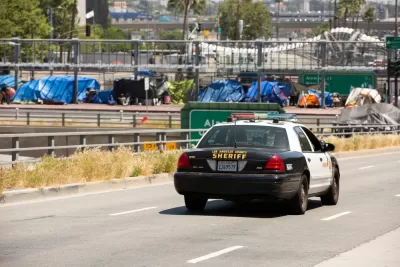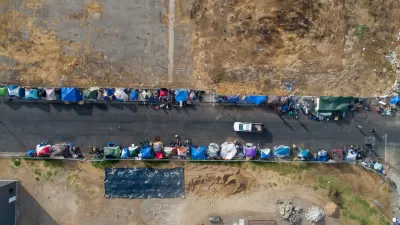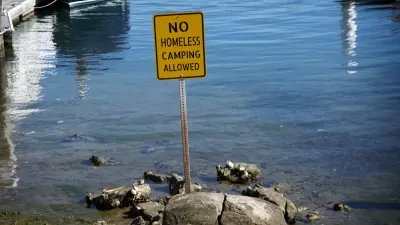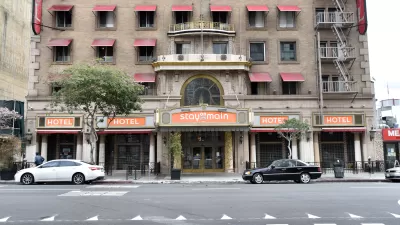A list dubbed the ‘Dirty Dozen’ shames the cities where unhoused people face the most harassment and least support from authorities.

A list compiled by the National Coalition for the Homeless identifies the ‘meanest cities’ in the United States when it comes to how officials treat unhoused people and the resources available to them. The Dirty Dozen list seeks to highlight the harassment and violence that people experiencing homelessness often face at the hands of law enforcement and others.
Each one of the Dirty Dozen cities are regularly harassing those who stay outside and have been engaging in sweeps for over a year. Each one of these cities has a severe lack of affordable housing, including long waiting lists for subsidized housing, while rents and evictions are both on the rise. Every one of these cities has an inability to house everyone requesting assistance, even in emergency congregate facilities.
According to the white paper, “The Dirty Dozen Meanest Cities in the United States is meant to highlight that neglect and hostility towards those without housing is leading to more people dying while homeless in one of the richest countries on the planet.”
With some of the country’s most expensive and scarce housing stock, the country’s largest population of unhoused people, regular law enforcement sweeps of areas like Venice Beach, and a much-publicized closure of Echo Park, Los Angeles tops the list of meanest cities. Three other California cities make the list, as well as New York City, Atlanta, and the nation’s capital.
The paper also notes that some—if only a few—cities “have not engaged in sweeps during the pandemic, but rather have worked hard to house those living outside,” including Pittsburgh, Santa Fe, and Cleveland.
See the source article for the full list, two dishonorable mentions, and how the NCH made its selections.
FULL STORY: DIRTY DOZEN MEANEST CITIES IN THE US

Planetizen Federal Action Tracker
A weekly monitor of how Trump’s orders and actions are impacting planners and planning in America.

Congressman Proposes Bill to Rename DC Metro “Trump Train”
The Make Autorail Great Again Act would withhold federal funding to the system until the Washington Metropolitan Area Transit Authority (WMATA), rebrands as the Washington Metropolitan Authority for Greater Access (WMAGA).

DARTSpace Platform Streamlines Dallas TOD Application Process
The Dallas transit agency hopes a shorter permitting timeline will boost transit-oriented development around rail stations.

Renters Now Outnumber Homeowners in Over 200 US Suburbs
High housing costs in city centers and the new-found flexibility offered by remote work are pushing more renters to suburban areas.

The Tiny, Adorable $7,000 Car Turning Japan Onto EVs
The single seat Mibot charges from a regular plug as quickly as an iPad, and is about half the price of an average EV.

Supreme Court Ruling in Pipeline Case Guts Federal Environmental Law
The decision limits the scope of a federal law that mandates extensive environmental impact reviews of energy, infrastructure, and transportation projects.
Urban Design for Planners 1: Software Tools
This six-course series explores essential urban design concepts using open source software and equips planners with the tools they need to participate fully in the urban design process.
Planning for Universal Design
Learn the tools for implementing Universal Design in planning regulations.
Municipality of Princeton
Roanoke Valley-Alleghany Regional Commission
City of Mt Shasta
City of Camden Redevelopment Agency
City of Astoria
Transportation Research & Education Center (TREC) at Portland State University
US High Speed Rail Association
City of Camden Redevelopment Agency
Municipality of Princeton (NJ)





























